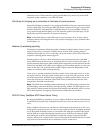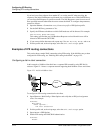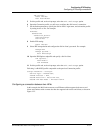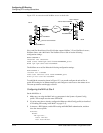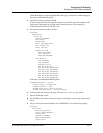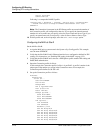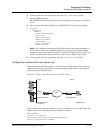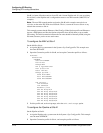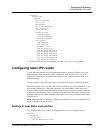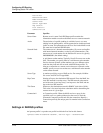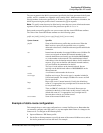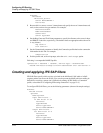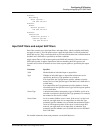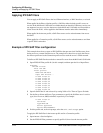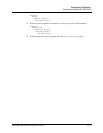
Configuring IPX Routing
Configuring static IPX routes
MAX 6000/3000 Network Configuration Guide 12-19
Ethernet
Connections
SITEAGW
Station=SITEAGW
Active=Yes
Encaps=MPP
PRI # Type=National
Dial #=555-1213
Route IPX=Yes
Encaps options...
Send Auth=CHAP
Recv PW=*SECURE*
Send PW=*SECURE*
IPX options...
IPX RIP=Both
IPX SAP=Both
NetWare t/o=30
SAP HS Proxy=N/A
SAP HS Proxy Net#1=N/A
SAP HS Proxy Net#2=N/A
SAP HS Proxy Net#3=N/A
SAP HS Proxy Net#4=N/A
SAP HS Proxy Net#5=N/A
SAP HS Proxy Net#6=N/A
3 Exit the profile and, at the exit prompt, select the exit and accept option.
Configuring static IPX routes
A static IPX route includes all of the information needed to reach one NetWare server on a
remote network. When the MAX receives an outbound packet for that server, it finds the
referenced Connection profile and dials the connection. You configure the static route in an
IPX Route profile.
You do not need to create IPX static routes to servers that are on the local Ethernet network.
Most sites configure only a few IPX routes and rely on RIP for most other connections. If you
have servers on both sides of the WAN connection, you should define a static route to the
remote site even if your environment requires dynamic routes. If you have one static route to a
remote site, it should specify a master NetWare server that knows about many other services.
NetWare workstations can then learn about other remote services by connecting to that remote
NetWare server.
Note: Remember that you manually configure static IPX routes, so you must update them if
there is a change to the remote server.
Settings in local Static route profiles
To configure a static route, set the following parameters (shown with sample settings):
Ethernet
IPX Routes
server-name
Server Name=server-name



